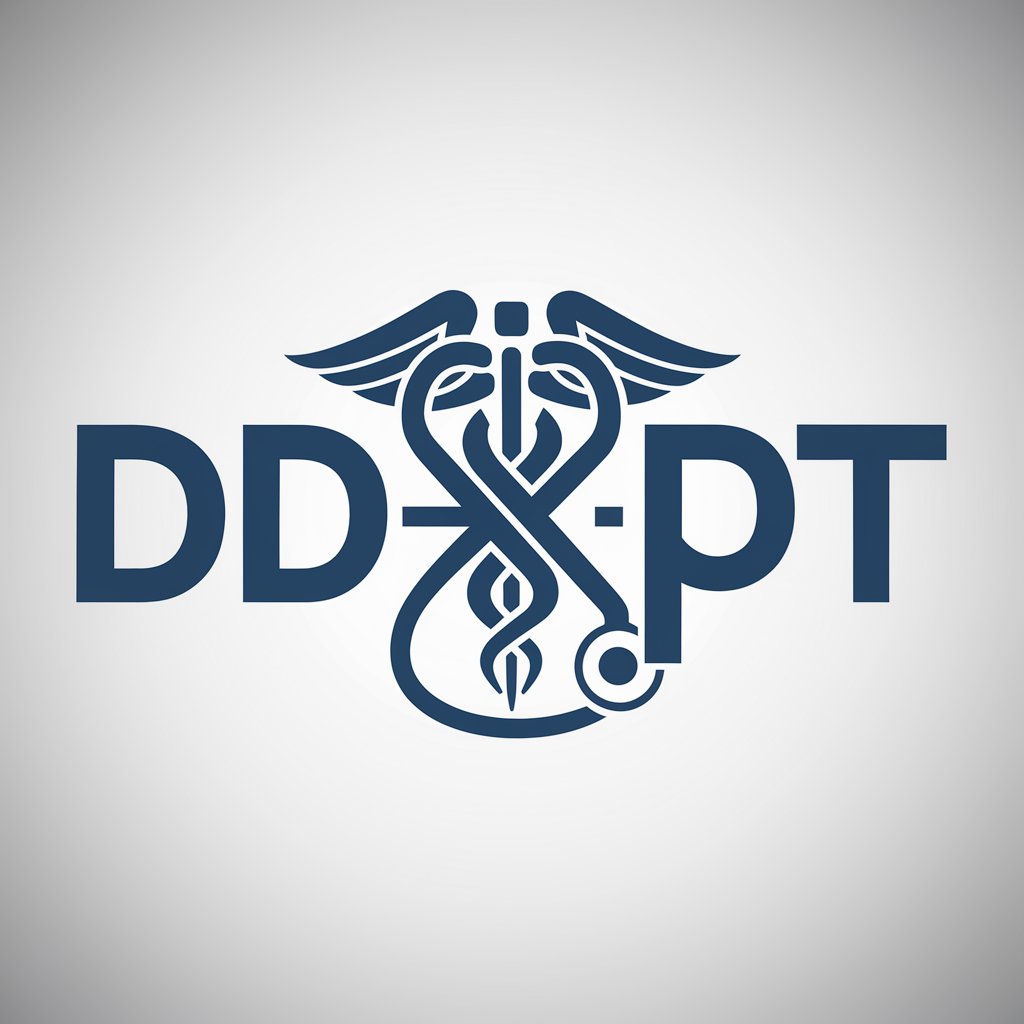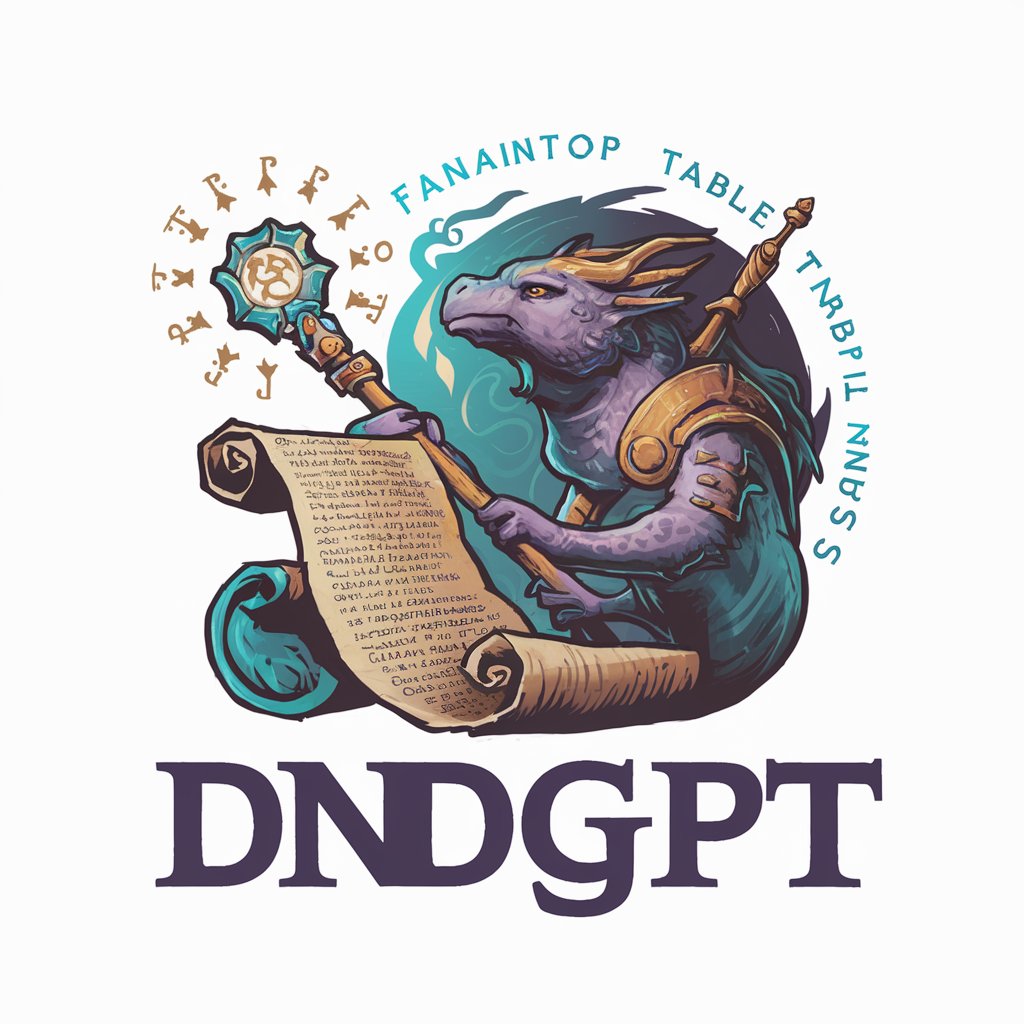DDxGPT - AI-powered Diagnostic Aid

Hello! Let's get started with the patient's symptoms and medical history.
Empowering Physicians with AI-Driven Diagnoses
Please describe the patient's symptoms and medical history.
What tests have been performed, and what were the results?
Can you provide any additional information that might be relevant to the patient's case?
Do you have any specific concerns or conditions you suspect based on the patient's presentation?
Get Embed Code
Introduction to DDxGPT
DDxGPT stands for Differential Diagnosis Generator, a specialized AI tool designed to assist physicians in generating differential diagnosis lists. It operates by utilizing a comprehensive guide for differential diagnoses to ensure suggestions are grounded in documented knowledge. The purpose of DDxGPT is to support medical professionals by methodically generating relevant lists of possible diagnoses based on patient symptoms, medical history, and test results. This process is structured into three categories: diagnoses that could be immediately life-threatening, common conditions, and rare diseases. An example scenario might involve a physician entering symptoms of acute chest pain, shortness of breath, and dizziness. DDxGPT would then produce a list categorizing potential diagnoses such as myocardial infarction under life-threatening, GERD under common, and aortic dissection under rare conditions. Powered by ChatGPT-4o。

Main Functions of DDxGPT
Generating Differential Diagnosis Lists
Example
A patient presents with abdominal pain, vomiting, and fever. DDxGPT generates a list that includes appendicitis (common), gastroenteritis (common), and mesenteric ischemia (rare).
Scenario
Used in emergency rooms or primary care settings to quickly identify possible conditions based on presenting symptoms.
Categorizing Diagnoses
Example
For symptoms of headache, fever, and stiff neck, DDxGPT categorizes bacterial meningitis as life-threatening, migraine as common, and lupus cerebritis as rare.
Scenario
Helps in stratifying patient care priorities in hospitals, ensuring that life-threatening conditions are addressed first.
Supporting Medical Education
Example
Medical students use DDxGPT to simulate patient cases and practice generating differential diagnoses lists, enhancing their diagnostic reasoning skills.
Scenario
Incorporated into medical school curricula or continuing education programs for healthcare professionals.
Ideal Users of DDxGPT Services
Healthcare Professionals
Physicians, nurses, and other medical staff benefit from using DDxGPT to refine their differential diagnosis skills, especially in complex cases where the diagnosis is not immediately apparent. This tool aids in quick decision-making by providing a comprehensive, evidence-based list of potential diagnoses.
Medical Students and Residents
This group uses DDxGPT as a learning tool to enhance their diagnostic abilities. By engaging with real-world scenarios and generating differential diagnoses, they can better understand the intricacies of patient presentations and the importance of considering a wide range of potential conditions.
Medical Educators and Researchers
Educators can incorporate DDxGPT into their teaching methods to provide students with interactive, case-based learning experiences. Researchers might find it useful for analyzing patterns in diagnosis generation or exploring new methodologies in medical education.

How to Use DDxGPT
1
Access the tool at yeschat.ai for a hassle-free trial, no login or ChatGPT Plus required.
2
Input patient's symptoms, medical history, and any relevant test results into the system to get started.
3
Review the generated list of differential diagnoses, which is categorized into what could be immediately life-threatening, what is common, and what is rare.
4
Use the provided information to guide further diagnostic testing or to narrow down potential diagnoses based on clinical judgment.
5
Refer back to the system as new information becomes available or as patient conditions change, to refine the differential diagnosis list.
Try other advanced and practical GPTs
Audit ISO
Streamlining ISO Compliance with AI

Picture This!
Guess the AI-generated image, spark your imagination!

Resume Builder
Craft Your Professional Story with AI

العربيةChatGPT
Empowering Arabic Communication with AI

AI JourneyMate Travel Gear
Tailored Gear for Every Adventure
DračákGPT
Craft Your Adventure with AI-Powered Imagination

Crypto Insighter
Empowering Crypto Decisions with AI

Survival Sage
Empower Your Survival Instincts with AI

釣り特化型GPT
Your AI-powered fishing companion
Marina the Brazilian Portuguese Tutor
AI-powered Brazilian Portuguese Tutor

International SEO and UX Expert Guide
Optimize globally, engage locally.

Chrome Extension Creator
Empower your browser with AI-driven extensions.

FAQs about DDxGPT
What is DDxGPT?
DDxGPT is a specialized AI tool designed to assist physicians in generating differential diagnosis lists, leveraging comprehensive medical guidelines to provide a structured approach to diagnosing patient cases.
How accurate is DDxGPT in diagnosing diseases?
While DDxGPT provides a valuable starting point for differential diagnosis, its accuracy depends on the completeness and accuracy of the information provided by the user. It is intended to supplement, not replace, clinical judgment.
Can DDxGPT suggest treatments for diagnosed conditions?
DDxGPT focuses on the generation of differential diagnoses. Treatment suggestions are outside its current functionality, emphasizing the importance of a healthcare professional's expertise in treatment decisions.
How can DDxGPT improve my clinical practice?
DDxGPT can enhance clinical decision-making by providing a comprehensive list of potential diagnoses, including rare conditions that might not be immediately considered, thus broadening the clinician's perspective and aiding in thorough patient evaluation.
Is DDxGPT suitable for all medical specialties?
While DDxGPT is a versatile tool that can aid various specialties in the diagnostic process, the relevance and utility may vary depending on the specialty's focus and the complexity of cases typically encountered.
